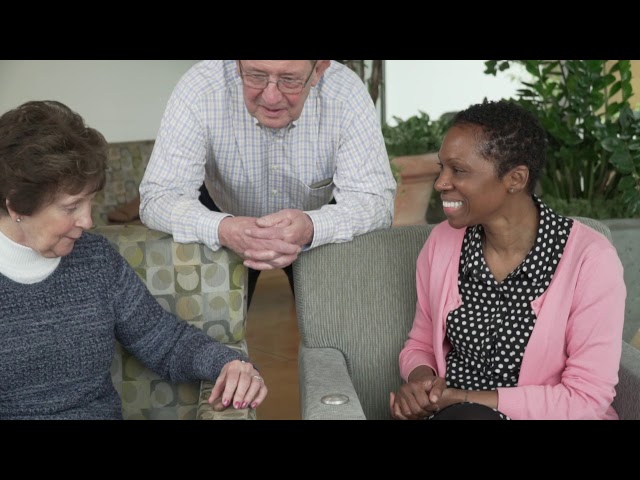Improving Cancer Care for Underserved Communities in Northeastern Massachusetts
As a member of the Alliance, the Massachusetts General Hospital (MGH) Cancer Center will work through its community health centers and with two community partners to improve the delivery  of cancer care for vulnerable patients. MGH will focus on individuals who experience substantial disparities in access to cancer treatment due to economic, cultural and language barriers or mental illness.
of cancer care for vulnerable patients. MGH will focus on individuals who experience substantial disparities in access to cancer treatment due to economic, cultural and language barriers or mental illness.
Community partners Community Action Programs Inter-City, Inc., and North Suffolk Mental Health will help identify vulnerable clients who need cancer care and refer them to the MGH Cancer Center for treatment and other supportive services.
The MGH Cancer Center will expand its patient navigation program to help support and guide vulnerable patients newly diagnosed with cancer. The support and guidance will extend through the full continuum of cancer care; from screening and diagnosis, to treatment and clinical trials, and, for some, end-of-life care.
The MGH community health centers serve residents in the Charlestown, Chelsea and Revere communities in and around Boston. These communities include many low-income residents who are racial and ethnic minorities, immigrants with limited English proficiency and refugees. In addition, these residents experience a substantial cancer burden as mortality rates due to cancer are significantly higher in the Charlestown, Chelsea and Revere communities compared with the United States.
People living in these communities face numerous obstacles that make it difficult to receive the health care services they need. Poverty and cultural and language barriers often limit access to care. Other barriers include:
- Lack of transportation to make medical appointments
- Disparities in cancer care for people with severe mental illness
- Limited access to clinical trials that provide early access to promising treatments
OUR APPROACH
Expand the MGH patient navigation program
- Increase the number of patient navigators and ensure they receive comprehensive training
- Develop a registry of at-risk patients newly diagnosed with cancer and a system to track patient care and navigators’ interventions
- Translate existing patient education materials into the major languages spoken in the communities
- Extend patient navigation services to clinical trials to improve patient understanding of and participation in clinical trials
Improve coordination between primary care and oncology teams
- Enhance MGH’s integrated electronic health record (EHR) system to help health care providers more easily share medical information, improve the referral system and better coordinate patient care
- Develop training modules to improve the use of the EHR system among patient navigators and clinical care team members
Strengthen patient-provider communication and promote patient engagement in care
- Provide training to medical providers and patient navigators in effective techniques to coordinate patient care, clearly and sensitively communicate a prognosis and subsequent treatment plan to patients
- Support patient engagement in care planning and treatment decision making
- Integrate patient navigators into the cancer care teams to streamline communications
Integrate psychosocial support and palliative care for vulnerable populations
- Screen patients for serious mental illness or other mental health needs at cancer diagnosis
- Screen and monitor patients for symptoms of emotional and physical distress
- Streamline the early consultations and patient referrals to social work, psychiatry or palliative care services
Program Profile Video
PROGRAM DIRECTOR
 Sanja Percac-Lima, M.D., Ph.D.
Sanja Percac-Lima, M.D., Ph.D.Assistant Professor, Harvard Medical School
Physician Leader for Cancer Outreach,
Massachusetts General Hospital Cancer Center
Email: spercaclima@mgh.harvard.edu
